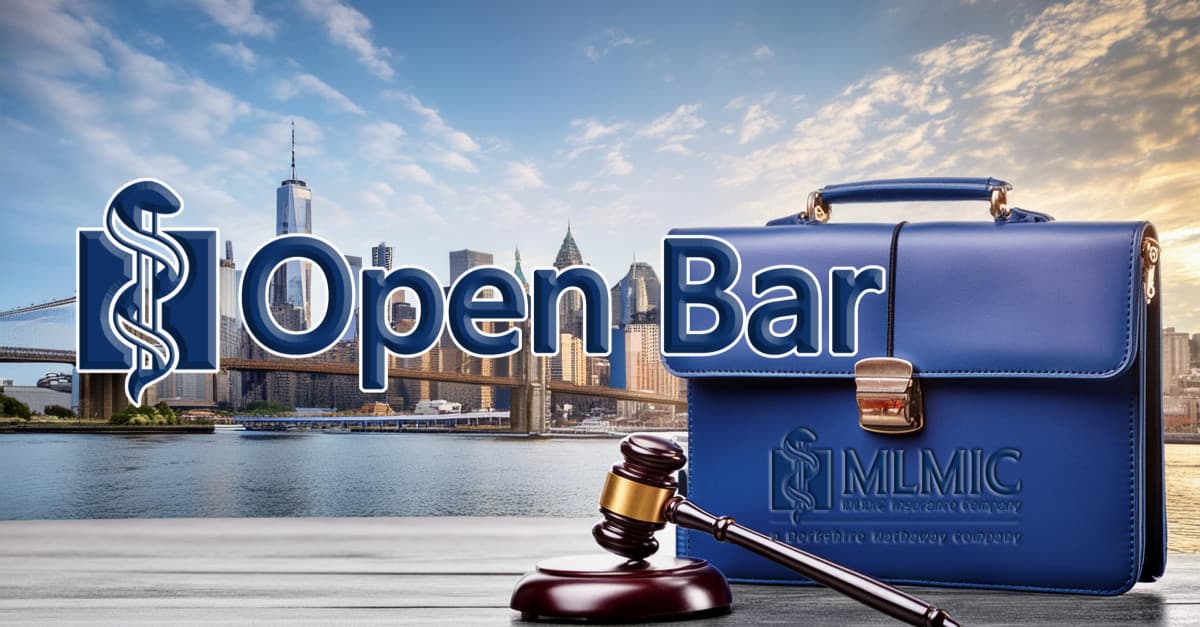< Back to Publications & Resources
Open Bar: How Should a Medical Practice Respond to a Parent’s Request to Amend a Minor’s Medical Record?

As healthcare providers, you are entrusted with the sensitive and confidential information of patients, especially minors. It is your duty to maintain accurate and complete medical records for their ongoing care. However, there may be times when parents request a change or amendment to their child’s record. In such cases, it’s essential to address their concerns promptly and professionally. But does the law require a healthcare provider to provide a written response to every request to amend a minor’s medical record?
Let’s look at our September FAQ on this topic.
Question Presented: The mother of a patient contacted a medical practice requesting an amendment/change to her daughter’s medical record. Apparently, there was a pending lawsuit involving a motor vehicle accident, and there was an entry in the medical record referencing a pre-existing degenerative disc condition. The mother insisted that the entry was inaccurate and demanded it be removed from her daughter’s medical record. The mother did provide the practice with a written request to change the record. The physician responsible for the entry was adamant that the record was accurate and would not agree to change it. Is the practice required to provide a written response to the mother’s request, and if so, what should be included in the response?
Response: Assuming the mother is a qualified person and authorized to act on behalf of her daughter, HIPAA does require a written response relative to the amendment/change request. However, the provider is certainly entitled to deny the request if he/she believes the record is complete and accurate. If the request for an amendment is denied, then the provider must send a timely written notice that contains the reason for the denial and includes information about how to file a complaint. It is generally recommended that the letter include the specific contact information for the government agencies responsible for handling such complaints. The request and denial should be maintained in the medical record. Specific requirements are outlined in The HIPAA Privacy Rule (45 CFR 164.526).
Medical providers practicing in New York State should also be aware that even if the provider denies the request, NYS Public Health Law Section 18(7) allows the patient an opportunity to introduce a (short) written statement in the medical record challenging the “alleged” inaccuracies of the record. This statement would be included in the medical record and sent out to authorized third parties in the event the records are requested in the future.
MLMIC policyholders can reach our healthcare attorneys for questions regarding documentation, responding to requests made by parents on behalf of a minor or any other healthcare law inquiries by calling (800) 275-6564 Monday – Friday, 8 a.m. – 6 p.m. or by email here.
Our 24/7 hotline is also available for urgent matters after hours at (844) 667-5291 or by emailing hotline@tmglawny.com.
Follow us on Facebook, LinkedIn or Twitter to stay in the loop about the medical professional liability industry.
If you are not already a MLMIC insured, learn more about us here.
Sources:
- The HIPAA Privacy Rule (45 CFR 164.526)
- NYS Public Health Law Section 18(7)
This document is for general purposes only and should not be construed as medical or legal advice. This document is not comprehensive and does not cover all possible factual circumstances. Because the facts applicable to your situation may vary, or the laws applicable in your jurisdiction may differ, please contact your attorney or other professional advisors for any questions related to legal, medical or professional obligations, the applicable state or federal laws or other professional questions.



